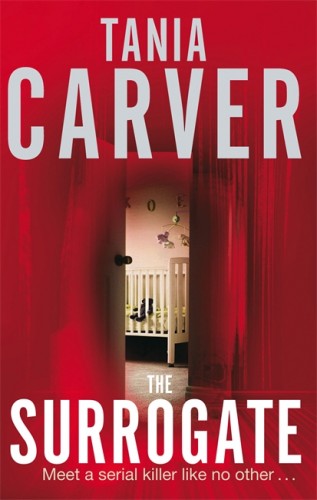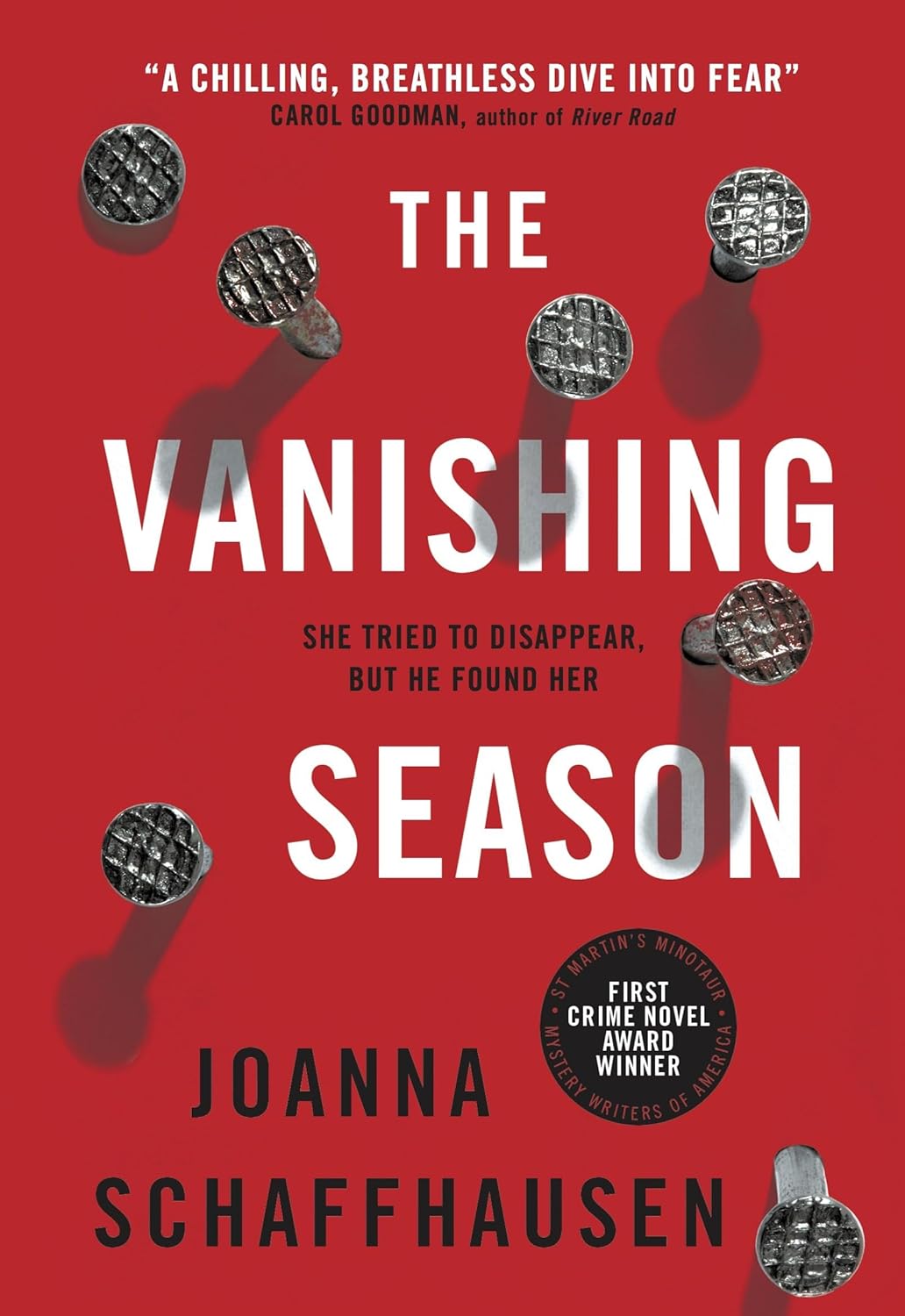
Why are libraries constantly having book sales these days?
Once upon a time I’m sure they had sales bi-annually or every quarter, but these days – much like the high street – the sales seem to be on constantly. This means bad things for my overcrowded bookshelves which this week became reluctant hosts to another small stash of ex-library books. ‘The Surrogate’ caught my eye because it seemed to promise my favourite kind of crime story: a psychological thriller.
What’s it about?
“After a loveless, abused childhood, Phil knows evil well, but nothing in his life has prepared him for this.”
The incredibly dramatic blurb can be reduced to this basic premise: a serial killer is cutting out babies from the wombs of full-term pregnant women; DI Phil Brennan thinks this killer is seriously evil; criminal profiler, Marina Esposito, is called in to help and suggests that a childless woman may be involved.
However, reducing the drama is the last thing the publishers want to happen. This killer is “sickening”, the “most depraved” killer Brennan has ever encountered and “a serial killer like no other”. Well, gosh. Like the blurb, the storyline feels OTT and out to shock. Attacking pregnant women? Stealing their babies from the womb? The culprit is a horror show, more a boogeyman than a person. Some readers may find this insistence on sensationalism off-putting; I simply found it underwhelming.
What’s it like?
Perhaps surprisingly, despite the potential for gore, the murders themselves are described, during and after, in ways that successfully convey their horror but are not actually that graphic. I have quite a sensitive stomach but there was only one truly wince-inducing scene (perhaps ironically, NOT a murder) and I never had to put the book aside to compose myself. Indeed, the first death becomes almost dull: “Her lungs stopped inflating, her heart stopped beating. Her eyes closed for the final time.” We get it. She died. Move on already.
The pace of the investigation is quick and there are plenty of twists and turns which help to make this quite a compelling read. Chapters are short, often only a few pages long, and end with gentle, effective cliffhangers. Chapters following the exploits of the investigating officers and Esposito are interspersed with italicised insights from the killer which emphasise how much he enjoys stalking and attacking women. This is perhaps an over-used strategy in the crime genre and there is no real novelty in its use here, but it is effective at building up tension.
The twists are largely predictable but that doesn’t make them any less shocking or enjoyable. This is a book where it’s probably best not to think too long or too hard about the plot though: the whole construction relies upon some big coincidences and the final twist is rather implausible, depending as it does upon a bit of a cheat.
What I didn’t like
For me the real disappointment was in the lack of psychological profiling. Esposito never actually gets round to writing her criminal profile and her contributions to the investigation mostly consist of standing in the crime scene explaining that the killer saw the women as simply carriers, husks, objects in his way. Admittedly, she does also point out that the police have the wrong guy nailed as the killer, but as no one listens to her that isn’t particularly helpful. She also seems to be very attractive to lunatics, which is unfortunate to say the least and, in its regularity, slightly unconvincing.
Rather than being a psychological thriller, this is a police procedural with some insights into the mind of a killer. The police work is logical, the suspects are living cliches (the woman-beater and the adulterous husband) and there’s the seemingly obligatory awkward relationship between two members of the investigative team. In short, despite Carver’s best efforts to shock readers, there’s nothing really that striking about the book. I found it easy to read, mildly compelling, slightly predictable and a bit too focused on the lives of the investigating team. Personally, I prefer to read about the crime-solving in crime stories; if I want romance I’ll read a romance.
Selling a sequence
Tania Carver is actually a pseudonym for Martyn and Linda Waites, a husband and wife writing together. It appears to be a successful partnership as the writing doesn’t feel at all disjointed in the way some team efforts can. (Hello Emlyn Rees, Josie Lloyd.)
This is Carver’s debut novel and the first book in the Brennan/Esposito series, but, oddly, it feels like it must be the second. Brennan and Esposito already have a whole back-story, focused around one case in particular, the details of which unfold throughout this story. There’s so much back-story that it almost feels like the book needs a prequel, but it all unfolds clearly enough as the plot develops.
More problematically, I found Esposito a rather annoying character. Her reasons for breaking up with Brennan are, frankly, daft (albeit entirely psychologically plausible) and the way she treats him and her live-in partner, Tony, is terrible. Her pregnancy seems to be little more than a plot device to make her a potential victim for the killer and I found the end of her story to be far too abrupt.
Final thoughts
Of course, you don’t have to like the characters to enjoy a story, and I did enjoy this, just not as much as I thought I might. Will I read the next book in the series? Yes – but largely because I purchased ‘The Creeper’ at the same time as ‘The Surrogate’. Despite the shocking storyline and dramatic characters, this isn’t a book that I found memorable or especially interesting and I doubt that I’d make a special effort to seek out the third in the series.
Although it didn’t impress me much, this book was short listed for the 2010 Theakston’s Prize and is now part of a growing series (four books published so far) featuring DI Phil Brennan and Marina Esposito. In fact, despite my minor quibbles, it is a fairly good example of the genre, it’s just not the revolution the over-excited blurb promises.


